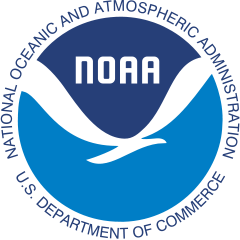Heat waves and cold spells aren’t always as dramatic as other weather events, such as hurricanes and tornadoes, but they can be just as dangerous. Exposure to extreme heat can cause heat exhaustion and heat stroke, and can lead to flare-ups of chronic conditions, including asthma and cardiovascular disease. The CDC estimates that more than […]
A remarkable three dozen GFDL researchers have been recognized among the top scientists around the globe, as assessed by Research.com in its ranking of the “Best Scientists in the World” for 2023. This ranking identifies and celebrates exceptional individual researchers at GFDL who are having a significant impact on the research community. This achievement also […]
The theme for Earth Day this year is “Invest In Our Planet,” and the Geophysical Fluid Dynamics Laboratory (GFDL) is leading the way in environmental sustainability. As a National Oceanic and Atmospheric Administration (NOAA) research laboratory, we have implemented innovative, environmentally sustainable and energy-saving solutions that not only contribute to combating climate change but have […]
Operational models are the backbone of weather and climate prediction, allowing experts to make informed predictions about the weather a few days from now — or the climate several decades into the future. But there’s another type of model that’s important to the forecasting process: experimental models. These models allow scientists to conduct research, test […]
Scientists at NOAA’s Geophysical Fluid Dynamics Laboratory are Tapping into Machine Learning to Better Understand the Impacts of Climate Change on our Oceans and Atmosphere When you hear the term “machine learning,” you might think of controversial chatbots or the algorithms that govern your social media feeds. But NOAA GFDL scientists are investigating how to […]
Last November, leaders and delegates from across the globe traveled to Sharm El-Sheikh, Egypt with the important goal of discussing and agreeing upon policies to mitigate climate change. Virtually joining the approximately 92 heads of state and 35,000 representatives of 190 countries in attendance at the 27th Conference of the Parties (COP27) was NOAA GFDL […]
Former NOAA scientist Kirk Bryan Jr., Ph.D, has been named winner of the 2023 National Academy of Science’s (NAS) Alexander Agassiz Medal for his pioneering work in oceanography and climate science. Bryan is widely recognized as the founder of numerical ocean modeling, and his work in the late 1960s at NOAA’s Geophysical Fluid Dynamics Laboratory (GFDL) […]
NOAA Geophysical Fluid Dynamics Laboratory scientists saw their research extend far and wide in 2022, as five NOAA GFDL researchers were listed among the most highly-cited scientists in the world in December. NOAA GFDL scientists Tom Delworth, John Dunne, Stephen Griffies, Larry Horowitz, and Andrew Wittenberg were among 13 total NOAA scientists to make the […]
Former GFDL scientist Sarah Kapnick, Ph.D. was named NOAA’s chief scientist today. Kapnick will serve as the senior scientist for the agency, advancing policy and program direction for NOAA’s science and technology priorities. She is the third woman in NOAA’s history to be appointed to this role. An executive with 18 years of experience at […]
Five scientists from the Geophysical Fluid Dynamics Lab are among 15 overall representing NOAA as top-cited researchers worldwide. The Clarivate Analytics 2021 Highly Cited Researchers list annually identifies international researchers who demonstrated significant influence in their fields over the past decade. GFDL is represented this year by Senior Scientist Thomas Delworth, Oceanographer John Dunne, as well as Physical Scientists Stephen […]












